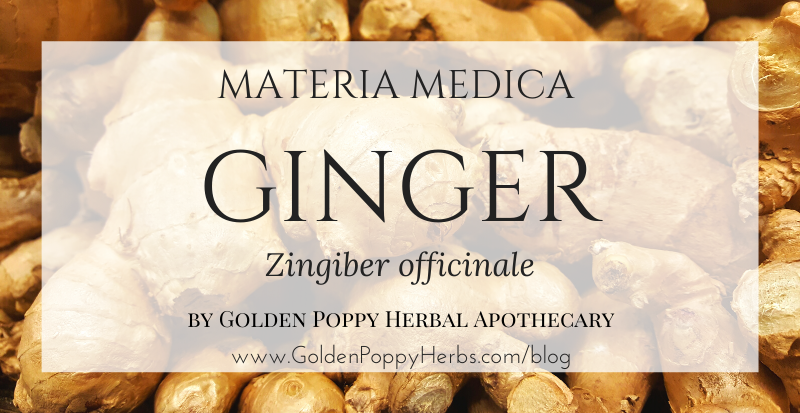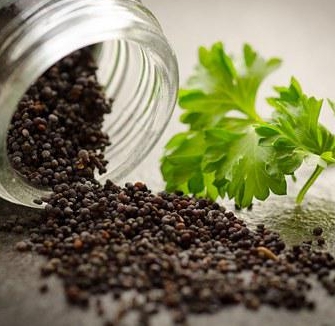
Maybe you have tried this spicy, snappy root when you are out for a bite of sushi. Or perhaps you have caught on to the candied ginger craze- consuming it in taffy or crystallized form. Regardless of your preconceived notions about this fiery herb, listen to the health benefits that it is loaded with!
Ginger has been found to be even more effective than the leading anti-nausea medicine, Dramamine, for curing sickness. When it comes to motion sickness, morning sickness, or just down-right queasiness, ginger root can settle your senses without overwhelming you with drowsiness.
The dried root is the preferable form of ginger when it comes to curing nausea. The dried herb is hotter and therefore, more effective in battling symptoms. One of the tastiest ways to get ginger in is in the crystallized form, which is where the ginger has been cured in sugar water…now we aren’t big fans of eating straight sugar, but when nausea hits, anything that helps is a good thing. Ginger not only settles the stomach, it aids digestion along the way.
As a dietary aid, ginger warms the digestion organs. This energetic sensation stimulates digestive secretions and increases the production of amylase, an enzyme formed in your salivary glands. This increase in enzymatic activity assists with the breakdown of starch and fat from the diet.
Ginger is also a highly effective anti-inflammatory, making it an excellent addition to your diet if dealing with issues ranging from arthritis to sore muscles after exercise. According to Dr. Aviva Romm, ginger is shown to be as effective as NSAIDs for relieving pain and inflammation when taking 500-1000mg, 1-2 times daily. This has been shown to be especially helpful for period pain (also called dysmenorrhea)
Diluted ginger essential oil is great for relieving pain when applied topically (part of why we put it into our Sore Muscle Rub).
It can be used alone or in conjunction with other herbs to help reduce the symptoms of colds & flus by fighting infections in the upper respiratory system and helping you to break a sweat. It also eases muscle tension that is often associated with the flu virus.
So whether you are pregnant, traveling, or just plain full of sushi, don’t hesitate to reach for this calming and nutritive herb.

MATERIA MEDICA: GINGER
Latin Name: Zingiber officinale
Family: Zingiberaceae (Ginger Family)
Part used: Rhizome
Description: Ginger is native to South Asia, East Africa, the Caribbean, India, and parts of Europe. It is a reed-like perennial plant that likes hot and moist weather. The knobby roots/rhizomes are harvested after the leaves have died back and used either fresh or dried. The rhizomes can be saved and replanted later. The rhizome has a classic pale yellow color and slightly stringy texture when fresh. It is exceptionally hard to cut once dry, so it’s best to cut when fresh and dry in smaller pieces.
Energetics: Pungent, sweet, warm
Actions: Analgesic, Antibacterial, antifungal, anti-inflammatory, antioxidant, antiparasitic, antiseptic, aphrodisiac, cardiotonic, diaphoretic, febrifuge, stomachic, yang tonic and more!
Uses:
- Amenorrhea (Absence of menses)
- Angina
- Analgesic
- Anti-inflammatory
- Anxiety
- Bloating
- Chemotherapy side effects
- Cold & Flu symptoms
- Depression
- Dysmenorrhea
- Erectile dysfunction
- Hypertension
- Irritable bowel syndrome
- Morning sickness
- Motion sickness
- Nausea (general)
- Stomach ache
Preparation and Dosage:
Tea – Fresh ginger – grate about 1-2 teaspoons fresh ginger into a cup, add hot water, allow to steep to desired strength.
Dried ginger – dried ginger is much more potent than fresh, so a little goes a long way. Start small, and taste frequently until the desired strength of tea is reached (usually less than 15 minutes.) Small, frequent sips are reported to be the best way to manage nausea, particularly morning sickness. (
Tincture – a few drops of ginger tincture can be placed directly in the mouth, or added to water as needed for nausea. For other uses 1-1.5 mL in water 3x/day (Dosage information from Herbal Therapy and Supplements by Winston and Kuhn)
Capsule – 500-100mg 1-2x daily of dried ginger, up to 3,000 mg/day is considered safe
Safety considerations:
If you have a known allergy or hypersensitivity to turmeric or plants in the Zingiberaceae family, avoid utilizing this herb.
Although highly effective in curing morning sickness, pregnant women should not ingest excessive amounts of ginger during the day (which is easy to do if you’re eating ginger candy!!) due to it’s warming and moving properties.
Ginger may also cause adverse reactions when consumed alongside anticoagulant drugs (such as aspirin or Coumadin).


